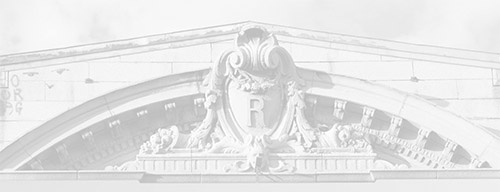
Up On The Roof
Letter from Montreal
“Wait there,” I say over my shoulder to my date, whose face blurs in the purple light of early sunrise. “I’ve done this a million times.”
It’s not true—I’ve watched someone else do it, but I feign confidence. I hoist myself on top of the recycling bin, armpits slick with summer sweat, and yank the rusted metal of the fire escape ladder, meant to be tucked out of reach, so that its first step meets the garbage-puddled concrete of the alley. I jump back onto the ground and place a foot on the metal slats. “Come on,” I say, with what I hope is a rakish grin. “The trick is not to look down.”
My date follows me hesitantly up the swaying five-storey stairway. Once we reach the top, uncertainty turns to elation. “This is incredible,” they say, surveying the extensive, multilevel rooftop. I lead them past filmy skylights and ventilation units until we are at the edge, looking down over the balustrades of the Rialto Theatre. Parc Avenue is laid out below us, the mountain hulking darkly beyond. We share our takeout poutine from Nouveau Palais, which is still an all-night diner, and succumb to the romance of a rooftop sunrise.
The Rialto Theatre is one of the most recognizable buildings in the Mile End. It presides over the corner of Parc and Bernard, often boasting a long lineup of event-goers beneath its marquis. Constructed in 1924 and designated a national historic site in 1993 due to its ornate Paris Opera-inspired façade and its Baroque interior, it reopened as a multipurpose, multi-room venue in 2010.
In the summers of the early 2010s, the Rialto rooftop becomes my go-to spot for dates. I like the intimacy of letting a new crush in on a city secret. In these years, everyone is always screening films in back alleys, playing shows in underpasses and abandoned tunnels, partying on rooftops and in vacant warehouses, climbing into concrete ruins armed with bike lights and curiosity. For a certain population of students and artists and activist-workers, rent is cheap and working hours are flexible. Staying up all night to ramble is the norm.
One night, after a party or an after-party, a big group of us gets bold and clambers up to the roof together to keep hanging out. That’s the clincher: the cops show up and escort us down, threatening large tickets. The secret doesn’t feel like a secret anymore, and I soon stop visiting.
Years later, I am working for POP Montreal, the Mile End music and arts festival. For some years, POP has set up its festival headquarters in the Rialto complex, using its labyrinthine rooms and theatres as venues and galleries, including the rooftop, which is one of the festival’s most coveted spots for artists to play.
The Mile End has changed noticeably. “For rent” signs are cropping up everywhere. Small businesses are disappearing. Much community ire is directed at Shiller Lavy, a real-estate company that is buying up the neighbourhood’s buildings and slapping renters with massive hikes. When the pandemic hits in 2020, landlords have the option to claim government subsidies that would allow them to reduce or suspend rent, but many don’t bother. If the Mile End felt gutted before, now it is dangerously close to a ghost town.
POP staunchly holds its annual festival that fall—a hybrid version, with most shows streaming online, and a few select live performances, mainly in small outdoor venues. Naturally, the Rialto rooftop is one of the live stages. On the last night of what has been a somewhat strange, subdued edition of the festival, the staff assembles on the Rialto roof. Someone DJs from their phone through the speaker system, and suddenly the energy is back. I’m not trying to seduce anyone now—my partner has long gone to bed, leaving me to stay up with the POP crew. But I get a surge of that old ecstasy, up here on the roof, dancing with my friends who I haven’t been able to see in months.
Looking over the vertiginous parapet, I can almost imagine that nothing has changed down below, that rent is affordable, that the shops are bustling, that big tech hasn’t moved in to stay, that the pandemic isn’t wreaking its lasting devastation. But nostalgia can be simplistic and misleading, so I turn away, back to my friends and coworkers, who are briefly lit up with joy. ⁂
H Felix Chau Bradley is a writer and editor living in Tiohtià:ke (Montreal). They are the author of Personal Attention Roleplay and Automatic Object Lessons. They are the fiction editor for This Magazine, an acquisitions editor for Metonymy Press, and the host of Strange Futures, a speculative fiction book club via Librairie Drawn & Quarterly.





